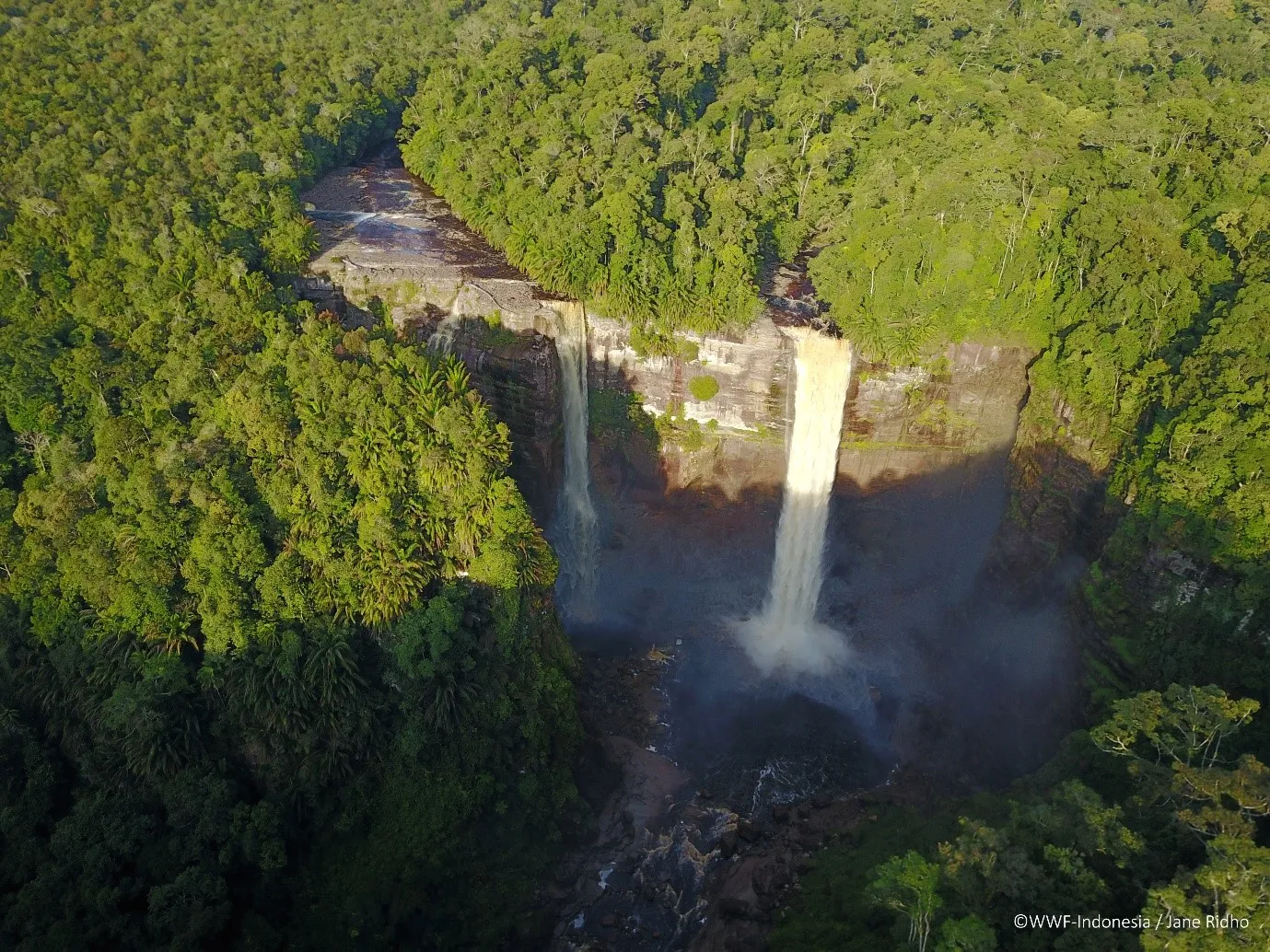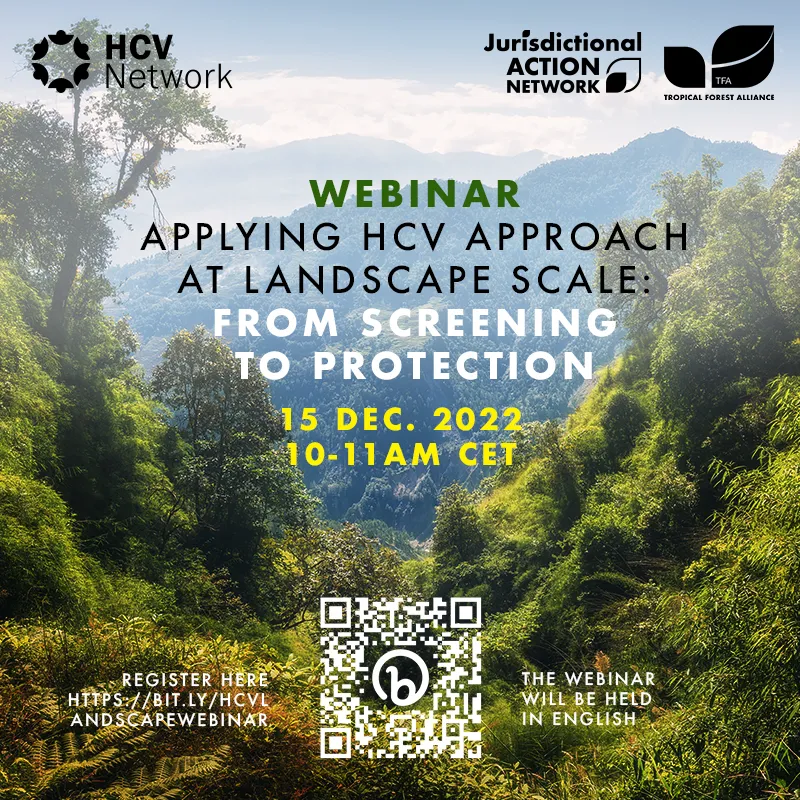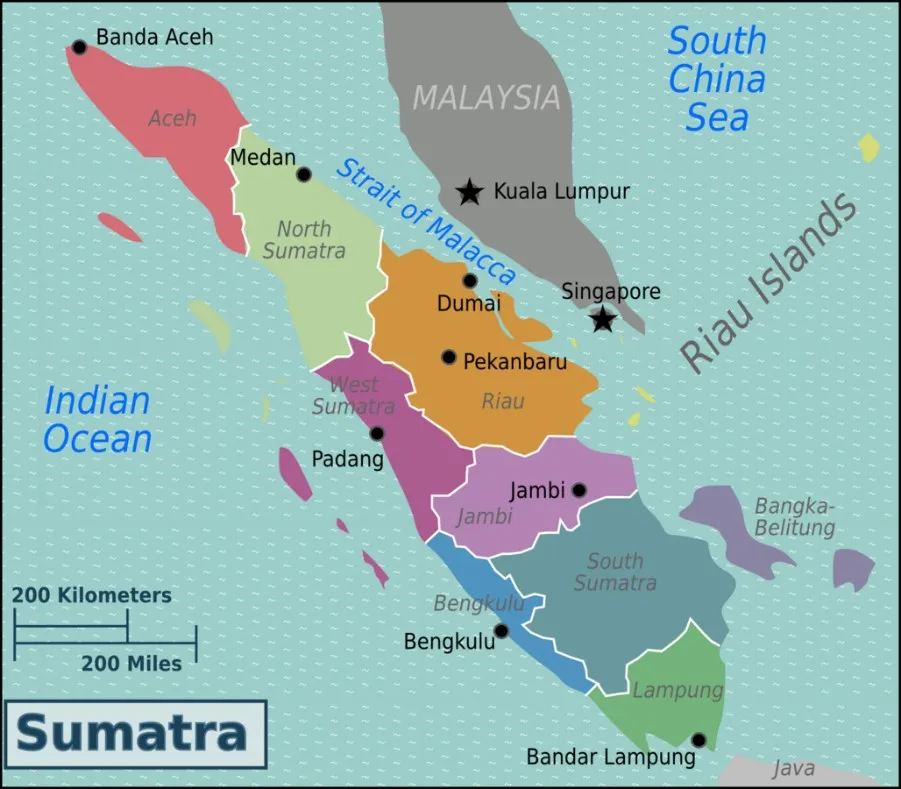
Landscapes & Jurisdictions
Commodity production must happen in a way that minimizes risks to environmental and social values. It is no longer feasible to only focus on individual farms and plantations in isolation of the surrounding landscape and communities.
Sustainable Development Goal 15 – Life on Land
Protect, restore, and promote sustainable use of terrestrial ecosystems, sustainably manage forests, combat desertification, and halt and reverse land degradation and halt biodiversity loss.
HCV Screening – an entry-point for the HCV approach at landscape scales
In response to increasing interest to scale up the use of the HCV approach in landscapes and jurisdictions, the HCV Screening Guidance was published as a supporting tool in 2019.
HCV screening is a participatory desktop process to understand which types of HCVs may be present in a landscape, and how those values are threatened, thereby setting priorities for follow-up action at landscape scales. While it is not appropriate to employ screening as a standalone methodology for making land-use planning decisions, it does provide a first step to plan and efficiently allocate resources for urgent follow-up actions, include participatory mapping and field-level assessments to identify HCVs actually present and the areas that support them.
HCV Screening considers
- The likelihood of HCV presence in a landscape
- The potential threats to the HCVs
- Which areas are the most urgent for follow-up action on the ground
Who can benefit from using the HCV screening tool?
The screening tool offers benefits to a wide variety of stakeholders involved in jurisdictional and landscape sustainability initiatives, including government technical staff, NGOs, donors and investors and multi-stakeholder platforms.
- Screening can help to inform governments and companies of potential HCVs that are likely to exist and to set priorities for follow-up activities needed for defining areas required for their protection.
- Screening can promote collaboration between neighbouring management units and reduce overlaps in fieldwork, creates cost-efficiencies for collaborative assessments, identifies high-priority areas for follow-up field work, making assessments more focused and efficient, and supports coordinated management and monitoring efforts across multiple management units within a landscape.
- Screening can also be used as a communication tool and spark discussion among landscape stakeholders to promote sustainability issues across landscapes.
- Community and indigenous people’s participation in a screening exercise also provides a platform to express priority concerns about environmental issues and prioritise actions.
- Screening can also be used by industry forums to prioritise and focus action for HCV management on the ground, aligned with their sustainability goals.
HCV Screening has been used in a wide variety of contexts including
- As a planning tool for more efficient HCV assessments as part of the RSPO jurisdictional certification scheme
- To inform follow-up procedures to identify HCVs in state-mandated forest certification
- To identify candidate areas for conservation and follow-up procedures required to confirm importance for their protection
- To identify potential conservation values, threats and map risks in production landscapes
- To streamline efforts to assess HCVs under climate projects
- To understand the potential impact of past environmental disasters
- To inform and engage growers and investors on potential management improvement from landscape risk-profiles
HCV Screening does have limitations. Appropriate and inappropriate uses of HCV Screening have been outlined in the updated HCV Screening Brief
The HCV Network Secretariat actively engages in landscape and jurisdictional initiatives and acts as a technical, independent advisor to link landscape or jurisdictional projects, and facilitates knowledge exchange for best practices to effectively and efficiently identify, manage and monitor HCV at landscape scales.
The Secretariat provides advisory services related to:
- Project planning and design
- Coordination or support with project implementation
- Interpretation of results and formulation of recommendations
- Training on the HCV Screening and follow-up HCV assessments, management and monitoring
- Quality assurance and feedback on HCV Screening
For more information, please contact secretariat@hcvnetwork.org.
Report Evaluations
Complaints & Investigations
For more information, click here.

Related Content
Collaborative Conservation: How Sintang is Building a Sustainable Future
Read MoreUpcoming Webinar: Applying HCV Approach at Landscape Scale: From Screening to Protection
Read MoreLarge-scale mapping of HCVs and HCS forest for Sumatra Island, Indonesia – an input to the new Hamurni tool for supply chain mapping and traceability
Read MoreRelated Documents
Our Partnerships
Alongside many global initiatives, our work with partners promotes practices that help meet the global Sustainable Development Goalsand build a greener, fairer, better world by 2030.


Femexpalma
In April 2022, FEMEXPALMA and the HCV Network signed a 5-year cooperation agreement to promote sustainable production of palm oil in Mexico. FEMEXPALMA is a Mexican independent entity that represents palm production at the national level and promotes the increase of productivity in a sustainable way.
With global markets becoming stricter, for Mexican producers to be able to export to key markets such as the European Union, they must meet strict requirements such as certification by the Roundtable on Sustainable Palm Oil (RSPO). To be certified by RSPO, the HCV Approach must be applied prior to the establishment of any new oil palm plantations. With this cooperation agreement, the HCV Network will support FEMEXPALMA’s members and allies to design better strategies to identify, manage and monitor High Conservation Values and support smallholders to achieve RSPO certification and implement good agricultural practices.
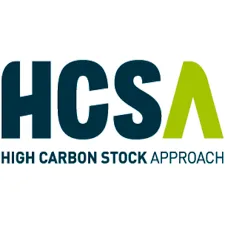

High Carbon Stock Approach
The High Carbon Stock Approach (HCSA) is an integrated conservation land use planning tool to distinguish forest areas in the humid tropics for conservation, while ensuring local peoples’ rights and livelihoods are respected.
In September 2020, HCV Network and the HCSA Steering Group signed a five-year Memorandum of Understanding (MoU) to strengthen their collaboration to conserve forests and uphold community rights in tropical forests. The HCS and HCV Approaches are cornerstones of corporate no deforestation and conservation commitments, and increasingly for actors working at different scales. The collaboration aims to further support effective implementation of these commitments through increased uptake of the HCV and HCS tools.
Through this MoU, HCSA and HCVRN are pursuing two main strategic goals:
- Strive to promote the application of the two approaches in tropical moist forest landscapes and explore further opportunities for collaboration.
- Ensure that, where the two approaches are applied together, this happens in a coordinated, robust, credible, and efficient manner, so that HCS forests and HCVs are conserved, and local peoples’ rights are respected.


World Benchmarking Alliance
From May 2022, the HCV Network is an ally at the World Benchmarking Alliance (WBA). WBA is building a diverse and inclusive movement of global actors committed to using benchmarks to incentivise, measure, and monitor corporate performance on the SDGs, and will assess and rank the performance of 2,000 of the world’s most influential companies against seven systems of transformation by 2023.
The scope of WBA’s circular transformation was expanded to cover nature and biodiversity as recognition of the need for greater understanding, transparency and accountability of business impact on our environment. The WBA Nature Benchmark was launched in April 2022, which will be used to rank keystone companies on their efforts to protect our environment and its biodiversity. As HCV Areas are recognised as key areas important for biodiversity, companies that publicly disclose their actions to identify and protect HCVs will contribute to the assessment of their performance against the benchmark.
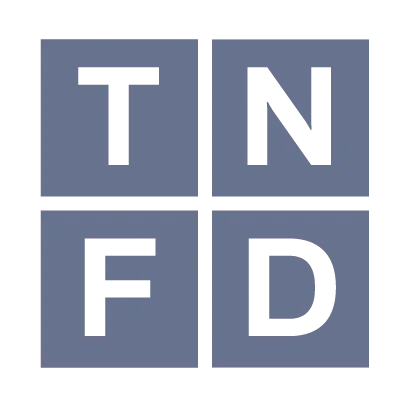

Taskforce on Nature-related Financial Disclosures - TNFD
The Taskforce on Nature-related Financial Disclosures (TNFD) is a global, market-led initiative, established with the mission to develop and deliver a risk management and disclosure framework for organizations to report and act on evolving nature-related risks, with the aim of supporting a shift in global financial flows away from nature-negative outcomes and toward nature-positive outcomes.
In April 2022, the HCV Network joined the TNFD Forum. The TNFD Forum, composed of over 400 members, is a world-wide and multi-disciplinary consultative network of institutional supporters who share the vision and mission of the task force.
By participating in the Forum, the HCV Network contributes to the work and mission of the taskforce and help co-create the TNFD Framework which aims to provide recommendations and advice on nature-related risks and opportunities relevant to a wide range of market participants, including investors, analysts, corporate executives and boards, regulators, stock exchanges and accounting firms.


Aquaculture Stewardship Council
The Aquaculture Stewardship Council (ASC) is the world’s leading certification scheme for farmed seafood – known as aquaculture – and the ASC label only appears on food from farms that have been independently assessed and certified as being environmentally and socially responsible. In 2021, the HCV Network and ASC formalised their collaboration through a Memorandum of Understanding (MoU). The MoU represents the first step in a fruitful relationship aimed at conserving HCVs in aquaculture. Although, existing guidance on the use of the HCV Approach currently focuses mainly on forestry and agriculture, the HCV Approach is however generic, and in principle also applicable to aquatic production systems. Through this MoU, this is recognised by the Aquaculture Stewardship Council (ASC) in their ASC farm standard, in which the protection of HCV areas is mentioned in the context of expansion
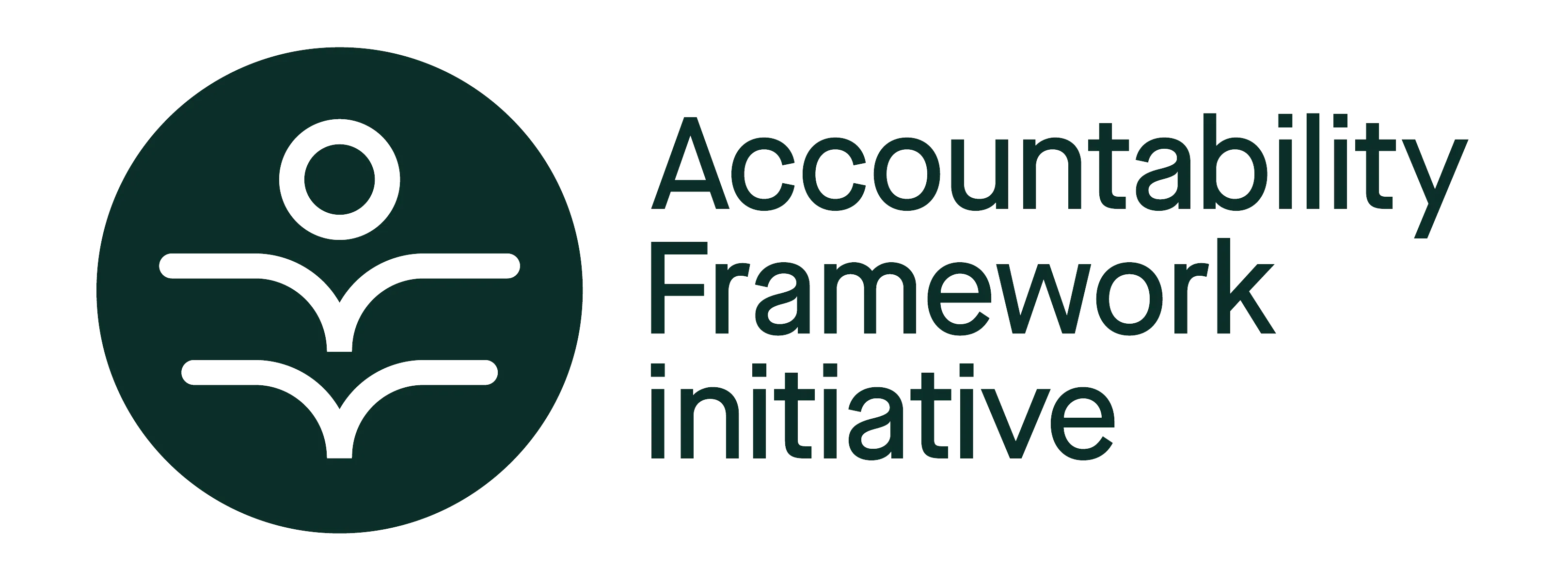

Accountability Framework Initiative
The Accountability Framework initiative (AFi) is a collaborative effort to build and scale up ethical supply chains for agricultural and forestry products. Led by a diverse global coalition of environmental and human rights organizations, the AFi works to create a “new normal” where commodity production and trade are fully protective of natural ecosystems and human rights. To pursue this goal, the coalition supports companies and other stakeholders in setting strong supply chain goals, taking effective action, and tracking progress to create clear accountability and incentivize rapid improvement. In July 2022, the HCV Network joined AFi as a Supporting Partner. AFi Supporting Partners extend the reach and positive impact of the AFi by promoting use of the Accountability Framework by companies, industry groups, financial institutions, governments, and other sustainability initiatives, both globally and in commodity-producing countries.


Biodiversity Credit Alliance
The Biodiversity Credit Alliance (BCA) is a global multi-disciplinary advisory group formed in late 2022. Its mission is to bring clarity and guidance on the formulation of a credible and scalable biodiversity credit market under global biodiversity credit principles. Under these principles, the BCA seeks to mobilize financial flows towards biodiversity custodians while recognising local knowledge and contexts.
The HCVN joined the BCA Forum in August 2023 to learn more from the many organizations already coming together to find effective pathways to opening up credit-based approaches, and how to contribute our knowledge and experience of years of working in a practical way, often with global sustainability standards and their certified producers, to protect what matters most to nature and people.
.webp)
.webp)
Nature Positive Forum
The Nature Positive Initiative is a group of stakeholders coming together to find ways to unlock success and achieve Nature Positive - a global societal goal defined as ‘halt and reverse nature loss by 2030 on a 2020 baseline, and achieve full recovery by 2050’, in line with the mission of the Kunming-Montreal Global Biodiversity Framework.
Core work includes preserving the integrity of ‘Nature Positive’ as a measurable 2030 global goal for nature for business, government, and other stakeholders, and providing the tools and guidance necessary to allow all to contribute. The initiative also advocates for the full implementation of the Kunming-Montreal Global Biodiversity Framework by governments and other stakeholders.
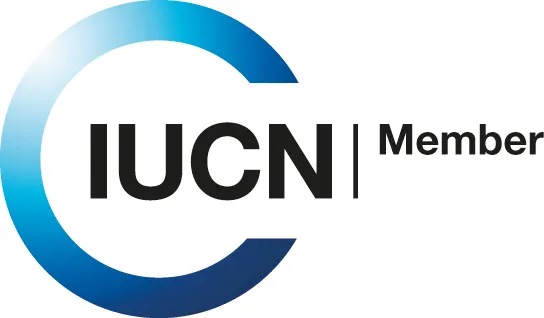

IUCN
IUCN is a membership Union uniquely composed of both government and civil society organisations. It provides public, private, and non-governmental organisations with the knowledge and tools that enable human progress, economic development, and nature conservation to take place together.
Created in 1948, IUCN is now the world’s largest and most diverse environmental network, harnessing the knowledge, resources and reach of more than 1,400 Member organisations and around 15,000 experts. It is a leading provider of conservation data, assessments, and analysis. Its broad membership enables IUCN to fill the role of incubator and trusted repository of best practices, tools, and international standards.
IUCN provides a neutral space in which diverse stakeholders including governments, NGOs, scientists, businesses, local communities, indigenous peoples’ organisations, and others can work together to forge and implement solutions to environmental challenges and achieve sustainable development.
Working with many partners and supporters, IUCN implements a large and diverse portfolio of conservation projects worldwide. Combining the latest science with the traditional knowledge of local communities, these projects work to reverse habitat loss, restore ecosystems, and improve people’s well-being.

Get Involved
Our Mission as a network is to provide practical tools to conserve nature and benefit people, linking local actions with global sustainability targets.
We welcome the participation of organisations that share our vision and mission to protect and enhance High ConservationValues and the vital services they provide for people and nature. By collaborating with the Network, your organisation can contribute to safeguarding HCVs while gaining valuable insights and connections that support your sustainability goals.
We are seeking collaborative partners to help expand and enhance our work, as well as talented professionals who can join the growing Secretariat team, and for professionals who can contribute to the credible identification of High Conservation Values globally.
Join us in securing the world’s HCVs and shaping a sustainable future.

